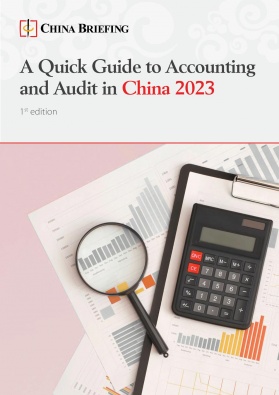China to Extend Preferential Individual Income Tax Policies
China has announced the extension of preferential individual income tax policies to December 31, 2023. We explain the major provisions included in the announcement, illustrate the original policies, and discuss how they may impact resident taxpayers.
On January 16, 2023, the State Taxation Administration (STA) and the Ministry of Finance (MOF) jointly released the Announcement on Continuing to Implement Preferential Individual Income Tax Policies (Announcement).
As per the Announcement, between January 1, 2023, and December 31, 2023, the government will continue to implement preferential individual income tax (IIT) policies related to equity incentives of listed companies and stock connect programs between the mainland and Hong Kong financial markets.
Accordingly, the equity incentives of listed companies will continue to be taxed separately, while preferential IIT policies of stock connect programs between the mainland and Hong Kong and the mutual recognition of funds will remain in place.
The move to extend preferential treatment seeks to boost China’s capital market liberalization and corporate innovation.
The Announcement adds to the list of other preferential tax policies extended until the end of 2023, such as the policy for foreign nationals’ benefits, and the one for the annual one-time bonus of both foreign and Chinese individuals.
What is China’s preferential IIT policy for equity incentives of listed companies?
China’s IIT policy for the equity incentives of listed companies was originally stipulated in the Notice of the Ministry of Finance and the State Administration of Taxation on Issues Relating to Transition of Preferential Policies following the Revision of the Individual Income Tax Law (Cai Shui [2018] No.164), which was set to expire by the end of December 31, 2021.
The policy was extended twice, once at the end of 2021, and once at the beginning of 2023, as illustrated below:
- First extension: The Announcement [2021] No. 42 of the Ministry of Finance and the State Taxation Administration extended the implementation period of the preferential policy of separate taxation for equity incentives of listed companies to December 31, 2022.
- Second extension: The Announcement [2023] No. 2 of the Ministry of Finance and the State Taxation Administration further extended the implementation period of the preferential policy of separate taxation for equity incentives of listed companies to December 31, 2023.
Here, equity incentives generally refer to stock options, stock appreciation rights, restricted stocks, and equity awards.
According to Cai Shui [2018] No.164, resident taxpayers who obtain equity incentives from listed companies can avoid including them in the comprehensive income of the current tax year. The complete income tax rate will be calculated and paid separately.
To be more specific, to enjoy this preferential IIT policy, the equity incentives obtained by a resident individual should satisfy the relevant criteria stipulated in the Notice of the Ministry of Finance and the State Administration of Taxation on Levying and Collection of Individual Income Tax on Income from Shares and Share Options (Cai Shui [2005] No. 35), the Notice of the Ministry of Finance and the State Administration of Taxation on Issues Relating to Levying and Collection of Individual Income Tax on Income from Stock Appreciation Rights and Income from Restrictive Shares (Cai Shui [2009] No. 5), article 4 of the Notice of Ministry of Finance and the State Administration of Taxation on Nationwide Implementation of the Relevant Tax Collection Pilot Policies of the National Innovation Demonstration Zone (Cai Shui [2015] No. 116), and item (1) of article 4 of the Notice of the Ministry of Finance and the State Administration of Taxation on Improving Income Tax Policies Relating to Equity Incentives and Provision of Technology in Exchange for Shareholding (Cai Shui [2016] No. 101).
TAX PAYABLE AMOUNT = INCOME FROM EQUITY INCENTIVES X APPLICABLE TAX RATE – QUICK CALCULATION DEDUCTION
Where a resident individual obtains equity incentives on two or more than two occasions within a tax year, they shall be consolidated for tax computation.
Under the IIT law, resident taxpayer refers to an individual who has a residence in China or has spent a total of at least 183 days there in a year; non-resident taxpayer refers to an individual who hasn’t resided in China or hasn’t been listed as a resident there for less than 183 days in a tax year.
What other preferential IIT policies have been extended to the end of 2023?
On December 29, 2021, during the weekly State Council executive meeting, Premier Li Keqiang announced that China will extend the duration of several preferential IIT policies until the end of 2023. These include:
- The preferential tax treatment for the annual one-time bonus;
- The possibility of exemption from completing the formalities for final settlement of consolidated income for IIT when the taxpayer’s annual income does not exceed RMB 120,000 (US$17,695.72) and the retrospective tax payment is required upon the final settlement, which does not exceed RMB 400 (US$58,99).
According to this plan, the IIT on the annual one-time bonus can be calculated as opposed to being added to and taxed along with comprehensive income. Resident taxpayers in China are thus allowed to choose between the following two methods to calculate their IIT on the annual one-time bonus:
- Taxing the annual one-time bonus separately; or
- Taxing the annual one-time bonus as part of their annual comprehensive income.
For detailed calculation methods, you may consult our dedicated article.
How to manage China’s income taxes?
Since China’s IIT reform began in 2018, the country’s tax authorities have been implementing transitional measures and exposing firms and employees to a continually shifting tax policy environment.
Both employers and employees are advised to pay close attention to and be updated on the newest changes in China’s income tax regulations to avoid additional tax burden.
With a sizable professional team of HR and payroll professionals spread throughout China, Dezan Shira & Associates has been offering human resources, payroll, and tax consulting services as well as China individual income tax support for our customers.
Supporting our integrated payroll service is our proprietary cloud-based portal in China – asiaadmin™ – which provides timely policy updates in the system to ensure the accuracy of your tax calculation. The state-of-the-art HR and payroll system will help you stay on top of China’s income tax policy developments.
For more information and assistance, you are welcome to contact us at China@dezshira.com.
About Us
China Briefing is written and produced by Dezan Shira & Associates. The practice assists foreign investors into China and has done so since 1992 through offices in Beijing, Tianjin, Dalian, Qingdao, Shanghai, Hangzhou, Ningbo, Suzhou, Guangzhou, Dongguan, Zhongshan, Shenzhen, and Hong Kong. Please contact the firm for assistance in China at china@dezshira.com.
Dezan Shira & Associates has offices in Vietnam, Indonesia, Singapore, United States, Germany, Italy, India, and Russia, in addition to our trade research facilities along the Belt & Road Initiative. We also have partner firms assisting foreign investors in The Philippines, Malaysia, Thailand, Bangladesh.
- Previous Article China to Resume Pilot Outbound Tours to Selected Countries
- Next Article Prospects for European Companies in China in 2023








